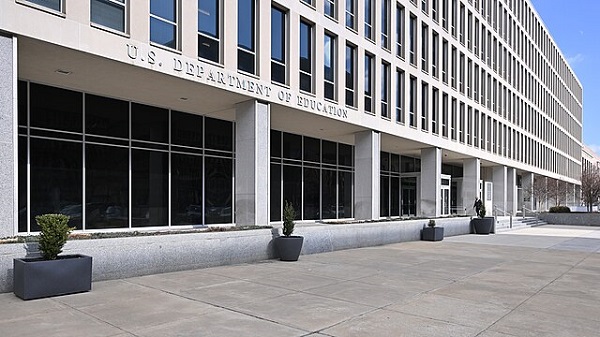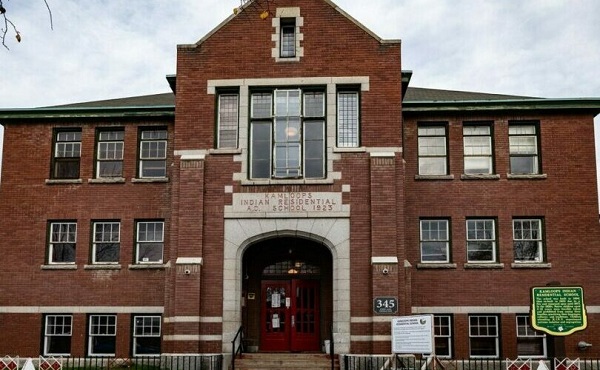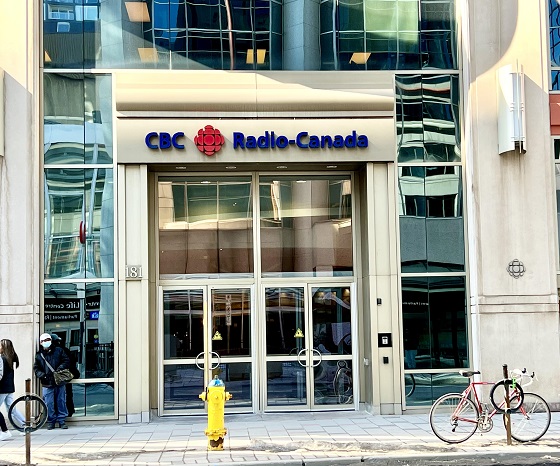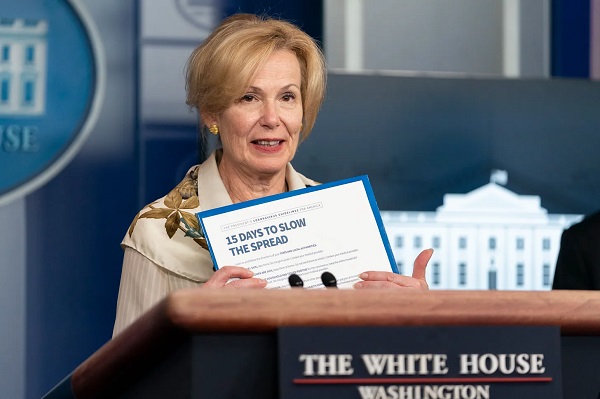Education
Back to school for students of year-round schedule at St. Patrick’s Community School

Mrs Reed and Mrs Ward can’t wait to see students for the first day of school! @rdcrs
News release from Red Deer Catholic Regional Schools
St. Patrick’s Community School prepares for an exciting new school year with staggered entry
Red Deer Catholic Regional Schools is thrilled to announce the opening of St. Patrick’s Community School, our year-round school, for the upcoming academic year, 2023-2024. The first day of school will commence with staggered entry on August 14 and 15, 2023. All students, both new and returning, will unite on August 16, 2023, for a day filled with excitement and learning.
Our year-round school is designed to provide students with a comprehensive and enriching educational experience throughout the year. With this innovative approach to learning, students will have more frequent breaks, which will enhance their retention and ensure a seamless continuation of their educational journey.
Staggered Entry Days:
August 14 and 15, 2023, have been assigned as staggered entry days to allow a smooth transition for students, parents, and staff. This approach allows teachers to provide personalized attention to each student and ensures that students become familiar with their new learning environments before the entire school comes together on August 16.
Meet the Staff Night:
On August 16, 2023, the school will host a special “Meet the Staff” evening, where students and their families will have the opportunity to get acquainted with our dedicated staff members. This interactive event will foster a strong sense of community and help build meaningful connections between families and the school.
Safety in School Zones:
As the new school year begins, Red Deer Catholic Regional Schools urges all drivers to exercise extreme caution and remain attentive while driving through playground zones. With students returning to the classroom, it is essential to be vigilant, obey posted speed limits, and stop for school buses as required by law. Ensuring the safety of our students is our collective responsibility, and we appreciate the cooperation of our community in maintaining safe school zones.
“We are thrilled to embark on this exciting journey of year-round learning at St. Patrick’s Community School,” said Mandy Reed, St. Patrick’s Community School principal. “Our dedicated team of educators is committed to providing a nurturing and stimulating environment that will inspire our students to reach their fullest potential. We look forward to welcoming both familiar faces and new students and families to our campus on August 16 for a fantastic start to the new academic year.”
For more information about our year-round school and the upcoming school year, please visit www.stpatsschool.ca, or contact the school at (403) 343-3238.
Red Deer Catholic Regional Schools serves over 10,085 students in 21 schools in Red Deer, Sylvan Lake, Rocky Mountain House, Innisfail, and Olds. It also supports the learning of over 600 students in a Home Education Program. The Division is committed to serving children and parents with a complete offering of learning opportunities delivered within the context of Catholic teachings and within the means of the Division.
Education
Renaming schools in Ontario—a waste of time and money

From the Fraser Institute
It appears that Toronto District School Board (TDSB) trustees have too much time on their hands. That’s the only logical explanation for their bizarre plan to rename three TDSB schools, which bear the names of Canada’s first prime minister, Sir John A. Macdonald, British politician Henry Dundas and Egerton Ryerson, founder of public education in Ontario.
According to a new TDSB report, the schools must be renamed because of the “potential impact that these names may have on students and staff based on colonial history, anti-indigenous racism, and their connection to systems of oppression.”
Now, it’s true that each of these men did things that fall short of 21st century standards (as did most 19th century politicians). However, they also made many positive contributions. Canada probably wouldn’t exist if John A. Macdonald hadn’t been involved in the constitutional conferences that led to Confederation. More than anyone else, he skillfully bridged the divide between British Protestants and French Catholics. But for a variety of assigned sins typical to a politician of his era, he must be cancelled.
Henry Dundas supported William Wilberforce’s efforts to abolish slavery throughout the British Empire, but believed a more moderate approach had a higher chance of success. As a result, he added the word “gradual” to Wilberforce’s abolition motion—an unforgivable offense according to today’s critics—even though the motion passed with a vote of 230-85 in the British House of Commons.
Egerton Ryerson played a key role in the founding of Ontario’s public education system and strongly pushed for free schools. He recognized the importance of providing an education to students from disadvantaged backgrounds, something that was unlikely to happen if parents couldn’t afford to send their children to school. And while Ryerson was not directly involved in creating Canada’s residential school system, his advocacy for a school system for Indigenous students has drawn the wrath of critics today.
Knowing these facts from centuries ago, it strains credulity that these three names would so traumatize students and staff that they must be scrubbed from school buildings. Despite their flaws, Macdonald, Dundas and Ryerson have achievements worth remembering. Instead of trying to erase Canadian history, the TDSB should educate students about it.
Unfortunately, that’s hard to do when Ontario teachers are given vague and confusing curriculum guides with limited Canadian history content. Instead of a content-rich approach that builds knowledge sequentially from year-to-year, Ontario’s curriculum guides focus on broad themes such as “cooperation and conflict” and jump from one historical era to another. No wonder there is such widespread ignorance about Canadian history.
On a more practical level, renaming schools costs money. Officials with the nearby Thames Valley District School Board, which is undergoing its own renaming process, estimate it costs at least $30,000 to $40,000 to rename a school. This is money that could be spent better on buying textbooks and providing other academic resources to students. And this price tag excludes the huge opportunity cost of the renaming process. It takes considerable staff time to create naming committees, conduct historical research, survey public opinion and write reports. Time spent on the school renaming process is time not being spent on more important educational initiatives.
Interestingly, the TDSB report that recommends renaming these three schools has six authors (all TDSB employees) with job titles ranging from “Associate Director, Learning Transformation and Equity” to “Associate Director, Modernization and Strategic Resource Alignment.” The word salad in these job titles tells us everything we need to know about the make-work nature of these positions. One wonders how many “Learning Transformation and Equity” directors the TDSB would need if it dropped its obsession with woke ideology and focused instead on academic basics. Given the significant decline in Ontario’s reading and math scores over the last 20 years, TDSB trustees—and trustees in other Ontario school boards—would do well to reexamine their priorities.
Egerton Ryerson probably never dreamed that the public school system he helped create would veer so far from its original course. Before rushing to scrub the names of Ryerson and his colleagues from school buildings, TDSB trustees should take a close look at what’s happening inside those buildings.
In the end, the quality of education students receive inside a school is much more important than the name on the building. Too bad TDSB trustees don’t realize that.
Business
DOGE announces $881M in cuts for Education Department

Quick Hit:
The Department of Government Efficiency (DOGE) announced $881 million in cuts to Education Department contracts, targeting diversity training and research programs.
Key Details:
- About 170 contracts for the Institute of Education Sciences were terminated.
- The cuts include 29 diversity, equity, and inclusion (DEI) training grants worth $101 million.
- The move comes as President Trump is expected to issue an executive order to wind down the Education Department.
Diving Deeper:
The Department of Government Efficiency (DOGE) confirmed Monday night that it had cut $881 million in Education Department contracts, marking a major step in the Trump administration’s plan to restructure the agency. The cuts target nearly 170 contracts, including several linked to the Institute of Education Sciences (IES), the department’s research division.
Among the terminations are 29 grants related to diversity, equity, and inclusion training, which collectively totaled $101 million. One of the grants aimed to train teachers on how to help students “interrogate the complex histories involved in oppression” and recognize “areas of privilege and power,” according to DOGE’s statement.
The American Institutes for Research, a nonprofit specializing in social science studies, confirmed that it received multiple termination notices for IES contracts on Monday. “The money that has been invested in research, data, and evaluations that are nearing completion is now getting the taxpayers no return on their investment,” said Dana Tofig, a spokesperson for AIR. He argued that the terminated research was essential to evaluating which federal education programs are effective.
The cuts coincide with President Trump’s expected executive order to wind down the Education Department, a long-standing conservative policy goal. Meanwhile, Trump’s nominee for Education Secretary, Linda McMahon, is set to testify before Congress on Thursday.
The Education Department and DOGE have yet to comment on the specifics of the terminations. However, the move signals a clear shift in priorities, with the administration pushing to reduce federal involvement in education spending, particularly in programs aligned with progressive social initiatives.
-

 Indigenous17 hours ago
Indigenous17 hours agoTrudeau gov’t to halt funds for ‘unmarked graves’ search after millions spent, no bodies found
-

 Censorship Industrial Complex2 days ago
Censorship Industrial Complex2 days agoBipartisan US Coalition Finally Tells Europe, and the FBI, to Shove It
-

 Health2 days ago
Health2 days agoTrump HHS officially declares only two sexes: ‘Back to science and common sense’
-

 Business1 day ago
Business1 day agoFederal Heritage Minister recommends nearly doubling CBC funding and reducing accountability
-

 Business1 day ago
Business1 day agoArgentina’s Javier Milei gives Elon Musk chainsaw
-

 Business2 days ago
Business2 days agoGovernment debt burden increasing across Canada
-

 Business16 hours ago
Business16 hours agoApple removes security feature in UK after gov’t demands access to user data worldwide
-

 International1 day ago
International1 day agoJihadis behead 70 Christians in DR Congo church




